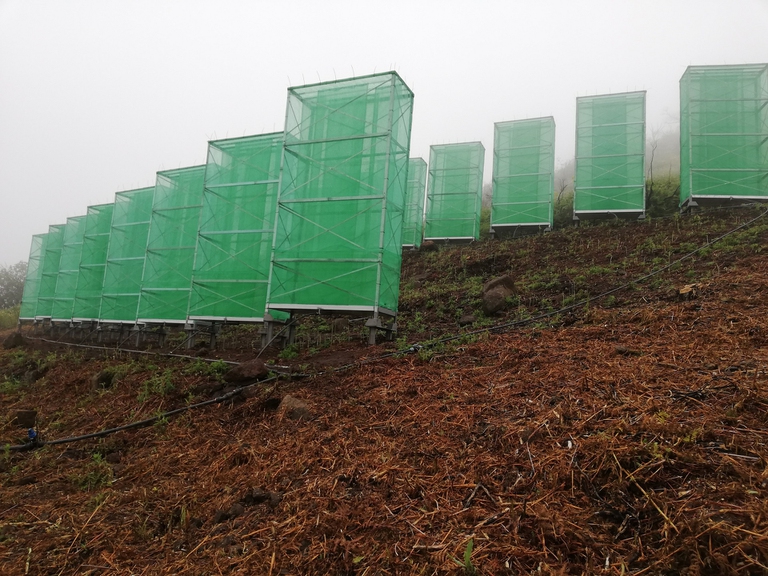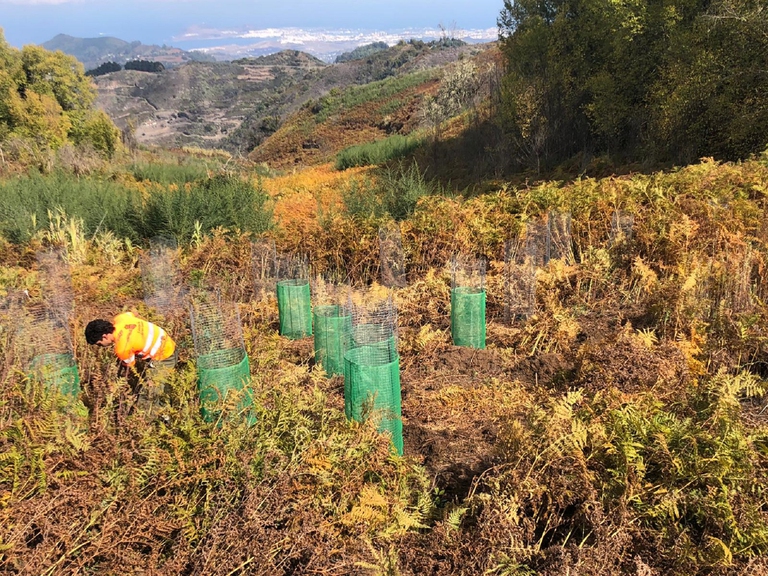https://www.lifegate.it/acqua-nebbia-desertificazione
- |
- Life Nieblas uses fog collectors in Gran Canaria, Spain's Canary Islands, and Portugal to improve arid landscape and encourage reforestation.
- The project is financed by the European Union and after the first experiments in the Iberian peninsula it could be exported to other areas of the Mediterranean.
- The Spanish startup has also launched an innovative sowing program which is also used in Italy.
Capture tiny drops of water from the fog and use them to recover areas affected by drought, fires and desertification:that's the purpose of Life Nieblas (niebla in Spanish it means fog).The project begins in the mountains of the Canary Islands in Spain, where the trade winds favor the formation of clouds which generate the precious fog as well as the horizontal rains characteristic of the Atlantic islands.The fog collectors – thin plastic nets erected in a very windy path – have existed for some time, but have never been used as efficiently as in the Life Nieblas installations.After good results in his homeland and Portugal, the Spanish scientists want to export their program in other European areas.And this isn't their only revolutionary project.

How fog collectors work
When the wind blows the fog through the net, the water droplets collect and fall into the containers below.“Fog harvesting is particularly applicable in forest restoration Laurisilva, the laurel of the Canary Islands, which in turn exist by collecting water from the fog" he said Vicenç Carabassa, one of the founders of the project.In Gran Canaria, the goal is capture 215 thousand liters of water from fog per year and dew.The Doramas forest also benefits, an area at high risk of desertification due to fires.
In addition to the Spanish islands, the project financed by the European Union and managed by the public company Gesplan it was also launched in Portugal and Catalonia.In other areas of the Mediterranean, where desertification and Fires are an increasingly frequent problem, it would be equally useful.“We are still trying to find out what the optimal conditions are for fog collectors to operate.After i laboratory tests in our wind tunnel, the field tests try to collect some in-depth data in real atmospheric conditions,” says Carabassa.
Cocoon for seeds
The ultimate goal is for new extensions of laurel forests created thanks to the water from the fogs survive alone without irrigation for a year and a half and capture the humidity transported by the fog thanks to the containers present on site.In addition to the new use of mist, Life Nieblas has come up with a tree seed protection project:the Cocoon autonomous irrigation system.

Cocoons are biodegradable deposits that provide permanent irrigation by capillarity thanks to a container of water that reduces the temperature around the root of the plant and which can make the difference between the survival or death of the specimen.The solution has been implemented in Catalonia, Canary Islands, Valencia, Almería, Portugal, Italy and Greece.The Cocoon can hold 25 liters of water and provides water and shelter to the seedling, at least during its first year, which is usually the most critical;it is buried in the ground and is filled initially by hand with water, then by rain and, in the Canary Islands and Portugal, with water from fog collectors.
“We restore habitats of community interest which host plant and animal species unique in the world and which, moreover, have a direct impact on the lives of the people who live on the island.We also propose innovative reforestation methods, we work to raise awareness of the importance of forest cover and water resources, and we promote the transfer of knowledge between universities and businesses" adds Carabassa.To overcome the damage caused by climate changes and from fires, sustainable methods like those of Life Nieblas they exploit new uses of the weather conditions and nature that surrounds us.
